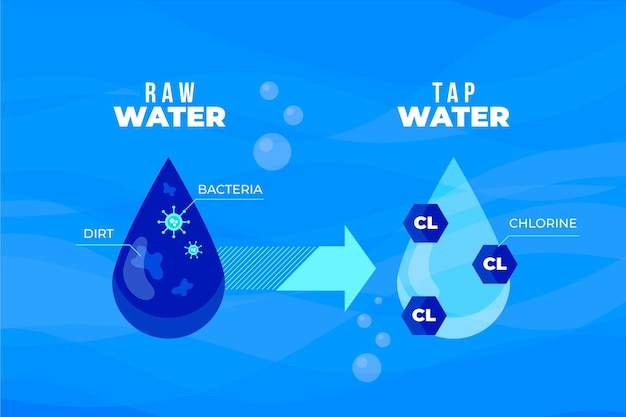Discover Fascinating Facts About Water

Water covers about 71% of the Earth’s surface.
Water can exist in three states: solid, liquid, and gas.
The human body is made up of approximately 60% water.
Water is essential for all forms of life to survive.
Water can dissolve more substances than any other liquid.
Water expands when it freezes, which is why ice floats.
Water has a high surface tension, which allows insects to walk on water.
Freshwater makes up only about 2.5% of the Earth’s total water supply.
The largest reservoir of fresh water on Earth is located in Antarctica.
Water can be used as a natural cleanser and is often referred to as nature’s beauty product.
Water can be used as a renewable source of energy through hydroelectric power.
Water molecules are constantly moving and reorganizing due to their inherent thermal energy.
Water is the only substance on Earth that can naturally exist in all three physical states simultaneously.
The average person in the United States uses about 80-100 gallons of water per day.
Water can be found in various forms on other planets, such as ice on Mars.
Water is a universal solvent, meaning it can dissolve more substances than any other liquid.
Water has a unique boiling point of 100 degrees Celsius at sea level.
Water is often used as a coolant in industrial processes and power plants.
The Dead Sea, located between Jordan and Israel, is one of the saltiest bodies of water on Earth.
Discover Fascinating Facts About Water part 2
Water can be found in the form of steam, clouds, fog, rain, and snow.
Water is crucial for photosynthesis, the process by which plants convert sunlight into energy.
Water is a vital component in the production of many products, including food, beverages, and pharmaceuticals.
Water scarcity affects over 2 billion people around the world.
The water cycle, also known as the hydrological cycle, describes how water circulates between the Earth’s surface and the atmosphere.
Water has a high specific heat capacity, which helps regulate temperature on Earth.
Water is an excellent solvent for many minerals and nutrients, making it essential for soil fertility.
Water is used in many recreational activities, such as swimming, surfing, and boating.
Saltwater makes up approximately 97.5% of the Earth’s total water supply.
Water has a neutral pH of 7, which makes it neither acidic nor alkaline.
Water is the primary component of most beverages, including coffee, tea, and soda.
Water can be filtered and treated to remove impurities and make it safe for consumption.
Water has unique properties, such as capillary action, which allows it to be drawn up through small spaces against the force of gravity.
Water scarcity is a major global issue, with many countries experiencing water stress or water scarcity.
Water plays a significant role in regulating Earth’s climate through the ocean currents and evaporation.
Water is used in agriculture for irrigation, which is essential for food production.
Water has a high heat of vaporization, which makes it an efficient cooling agent.
Water is a natural resource that should be conserved and protected for future generations.
Water has a lower density as a solid than as a liquid, which is why ice floats.
Water has a nearly constant refractive index, which allows light to pass through it relatively unchanged.
Water is used as a solvent in many industrial processes, such as the production of chemicals and pharmaceuticals.
Water is a key component in the formation and erosion of landscapes, shaping the Earth’s surface over time.
Water has been used for thousands of years for transportation, enabling the movement of goods and people.
Water is essential for the function of many organs in the human body, including the brain and heart.
Water is essential for maintaining healthy skin, as it helps hydrate and moisturize the body.
Water has been a symbol of purity, cleansing, and renewal in many cultures throughout history.

